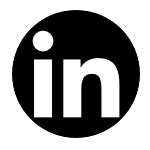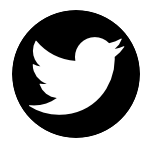|
Next Thursday (Thursday, May 30, 2:00 pm - 2:50 pm) I’ll be moderating a panel at Book Expo America entitled: The Future of Ebooks and Ereading.
I’ve invited some of the most knowledgeable people in the field to answer the questions that we really have about our transforming book ecosystem: Michael Cader: entrepreneur and creator of Publishers Marketplace, Publishers Lunch (the industry’s “daily essential read,” now shared with more than 45,000 publishing people every day), Publishers Launch Conferences (with Michael Shatzkin) and the recently launched, Bookateria. Jason Merkoski: author of Burning the Page: The eBook Revolution and the Future of Reading. Previously Jason was a development manager, product manager, and the first technology evangelist at Amazon, where he helped to invent technology used in today’s ebooks and was a member of the launch team for each of the first three Kindle devices. Andrew Savikas: CEO at Safari Books Online. Previously, Andrew led the digital publishing and ebook program and strategy for O’Reilly Media as VP of Digital Initiatives, and was a Program Chair for the Tools of Change for Publishing conference. Michael Tamblyn: Chief Content Officer at Kobo, responsible for sales, publisher and industry relations, content acquisition, and the merchandising experience across Kobo’s web and mobile services. Prior to joining Kobo, Michael was the founding CEO of the supply chain agency BookNet Canada, where he launched the national sales reporting service BNC SalesData. It’s an exciting (and very knowledgeable) set of panelists gathering to talk about what comes NEXT for ebooks. What are YOUR Questions? The book world is changing rapidly: the rise of eBooks, the advent of self-publishing, consolidation in the publishing industry, and the technological turmoil associated with the digital revolution. We are very much in the middle of the digital transformation of the book. So what does the future hold for ebooks and ereaders? And what are the implications for authors, booksellers, publishers and readers? What are YOUR questions about the future of ebooks and ereading? Feel free to add your questions to the comments below. Or you can tweet your questions using hashtag: #ebooksfuture. Looking forward to a GREAT conversation! With warmest wishes, Dominique Last Friday Library Journal announced an experiment between Overdrive and Sourcebooks called The Big Library Read.
The Big Library Read—The Pilot Sourcebooks and OverDrive are partnering on a pilot program that will allow library patrons worldwide the opportunity to read New York Times bestselling author Michael Malone’s acclaimed novel “The Four Corners of the Sky” in ebook format. The Big Library Read is a no cost program in which libraries worldwide promote from their lending catalog a single ebook to their patrons. In addition to creating a global “library book club,” it’s designed to generate data about the positive exposure and sales influence library ebook catalogs provide to authors and publishers. The Data How do readers discover authors and books? This seemingly simple question has always been central for book publishers, perhaps more now than ever. Any publisher will tell you that libraries have always been critical agents of discovery. Both Sourcebooks and Overdrive understand this. Today there is a deep and fruitful conversation occurring between libraries and publishers, and on the business side of the discussion most of it centers around ebook lending and financial models. This pilot is of value because it moves the conversation toward what we might accomplish together if we partnered at a deeper level. It’s using data to push the business discussion into a reading discussion, and to my mind there’s very little that’s more valuable than that to our culture. It has always been a “given” that library support helped drive author success, both short- and long-term. Seeing if we can provide data around that assumption is a fascinating challenge. With respect to this pilot, we hope to discover several things:
Library Journal has agreed to assist with data review and analysis following the pilot. Our primary goal is to learn, and (as always) we are eager to develop new ways of reaching readers on behalf of our authors. Bookstores and libraries I’ve always believed there’s an interaction between libraries and bookstores; that people find books they love and want to own in libraries and then go to bookstores to buy those books. As the U.S. publisher of every book by Georgette Heyer, we’ve certainly seen that link. This OverDrive pilot with Michael Malone runs for 2 weeks and then the book disappears from devices. Will people want to keep reading? What form will they want to read the book in? Will people want to read other Michael Malone books? Answering these and so many other questions makes for a compelling test. No experiment is perfect This is a pilot. Working with OverDrive and participating libraries, we will track and share data related to exposure, discovery, and retail sales activity that can be originated from library ebook lending catalogs Together we will endeavor to generate real data, ask and answer tough questions, and most importantly learn from it all. Specifics of the program
Why Michael Malone? Well, first of all, Michael is an author who we all felt clearly deserved this kind of worldwide attention. He’s is an award-winning writer who’s written novels, plays, short stories, and even soap operas. As his publisher and his friend, both he and his compelling work are near and dear to my heart. Secondly, The Four Corners of the Sky is a novel of love, secrets, and the mysterious bonds of families. Malone brings characters to life as only he can, exploring the questions that defy easy answers: Is love a choice or a calling? Why do the ties of family bind so tightly? And is forgiveness a gift to others...or a gift we give ourselves? The book was a 4-star People Magazine Pick and is beloved by Michael’s many fans. You can listen to this interview he did with NPR about The Four Corners of the Sky to learn more. When I told him about the OverDrive program, Michael totally got it, quickly telling me that libraries are “history’s home and freedom’s harbor” (yes, he really does speak like that…he’s just remarkable). And finally, this experiment is worldwide (there are over 25 countries involved) and Michael is an author for whom we have worldwide English language rights. As our digital culture continues to erode country and territory lines decades (even centuries) in the making, we will begin to generate data on what impact we can have worldwide. For Discussion What questions would you like to see us address? What hypotheses do you have? It’s all a compelling discussion, and we look forward to sharing and continuing it with you all. Feel free to post your thoughts below. With warmest wishes, Dominique “User interface.” It’s not usually where you start talking about Shakespeare. But it’s where this story starts. This is how we typically teach Shakespeare, whether in high school or in college. The current experience of learning and reading Shakespeare If you ask students about this experience, they use words like “difficult“ and “boring.” And if you watch them actually trying to learn that way, you recognize the problem. The way the book is set up actually interrupts their “flow”—it gets in the way of their immersion. Just think about what happens as soon as you don’t understand a word you read and you’ll see what I mean. Every time you look up a word, you’re interrupting the "reading the play/immersion" part of the process and are starting a different process. “Now what line was that?” you’ll think, “And where am I? What did that mean again?” Educators will tell you this experience is a major hurdle. One high school English teacher said to us that “it takes about 3 weeks to get kids into Shakespeare.” By the way, stage performers say the same thing — it takes time for audiences to get comfortable with the language and at some point (usually 15-20 minutes into the show) the audience “clicks over.” So with all these inherent challenges, we asked can we use technology to make reading Shakespeare easier? We’ve been working with students, teachers and readers on this very question and today we’re launching Shakesperience: A hands-on experience with Shakespeare—an experience that was built to help you more quickly get into and stay in the play, because it was built from the user’s point of view. A quick word about the process of answering that question. We’ve been building these interactive editions for a while, and the process has been incredibly iterative. We put the books into people’s hands, watched what they did (and didn’t do). We asked questions, rebuilt and tweaked some more, and then we tried it all over again.
What we can tell you from working with all these users is that the Shakesperience supports all different kinds of learning:
This is obviously only the beginning for us, but it’s a thrilling start. Just watching people use The Shakesperience has been a real joy. We hope it can transform and energize how students learn, and think it can change the way you read Shakespeare. I’d love to hear what you think. Dominique by Dominique Raccah About two years ago, I came to the conclusion that we needed to have a decidedly more direct relationship with our readers. I was especially intrigued by watching some of the smart ways publishers in other spaces (most notably O'Reilly and Baen) were engaging with their readers. It also came from watching how e-tailers like Amazon.com repeatedly used their customer information to build products, services and user engagement. Having a direct, ongoing relationship with our readers could not only make solid business sense, it could also help create enormous impact for our authors.
Discover a New Love is our first major project in this direction. Its focus is primarily on lovers of great romance novels, or novels with strong romantic elements. Among other things, we believe it will make us a stronger publisher—one better able to satisfy the desires of our readers. We believe we'll be better able to further the careers of our authors and to provide insights that may prove useful to our retail partners, as well as our authors, their agents and our international publishing partners. We think it will actually help us to create better books and market them in more interesting ways. Specifically we’re hoping to accomplish 3 things:
Fundamentally, we’re interested in one problem: how can we help a reader discover the next book or author they will love? We know people who read Susanna Kearsley love her books, so how do we help more readers to discover her books? (And so on for other authors obviously.) Like many new developments, we expect how we tackle this problem to evolve—starting immediately. Here are some of the ideas we’re starting with:
Discover a New Love is not intended to replace our valued partnerships and promotions with other retailers. Many who know Sourcebooks know we’re aggressive in testing promotions that find both greater readership and value for our authors, so we do and will continue to do frontlist and themed ebook promotions with our retail partners. Discover a New Love is envisioned as another avenue to help readers. If you’re a romance reader, it’s one more platform for discovery (with loads of neat pluses). The data we’ve seen shows that romance readers are heavy users and that they buy from many different outlets. We see this is an expansion and addition to the current space. Discover a New Love is a new model built directly in response to what we’ve heard from authors, agents and readers. Expect a lot of changes from us. This is just the beginning. And we look forward to learning together. Thoughts, comments, suggestions are all welcome. With warmest wishes, Dominique In celebration of today’s anniversary of the birth of Johann Sebastian Bach, Sourcebooks MediaFusion is releasing an enhanced, introductory ebook on the life and music of the famed classical music composer. Johann Sebastian Bach 2Go, along with enhanced products on three additional composers--Wolfgang Amadeus Mozart 2Go, Ludwig van Beethoven 2Go, and Joseph Haydn 2Go—are available now for $2.99 in the ibookstore.
The classical music enhanced ebooks were designed to give you an introduction to the world of classical music through the composer’s work. In each ebook, you’ll not only discover the life and work of each composer through a thorough introduction to the artist and cues for what to consider when listening to his work, but, more importantly, throughout the text you’ll find embedded audio excerpts of the composer’s work. You can listen to short, representative samples as well as longer pieces by the composer. For anyone from classical music aficionados and devotees to students and newcomers, this interplay of text and audio will allow you to more fully experience each composer’s contributions to classical music, and will become a jumping-off point through which you’ll want to discover more. Sourcebooks has also released Presidential 2Gos from the multimedia book My Fellow Americans, by Michael Waldman (director of speechwriting for President Bill Clinton from 1995–1999). Ronald Reagan 2Go, Franklin Delano Roosevelt 2Go, John F. Kennedy 2Go, and George Washington 2Go are also available in the ibookstore $2.99. With these enhanced ebooks, you’ll discover some of each president’s most notable speeches, including the entire text of the speech and a brief introduction by noted political journalist and broadcaster George Stephanopoulos. Most importantly, you’ll be able to hear the heart of the speeches, either faithfully re-created by a guest contributor or delivered by the president himself. There are loads of things that are interesting about ebooks. One of them is that you can fairly easily change the price of an ebook. So how eBooks are priced and why has to be a major aspect of any publisher’s (or author’s) strategy.
Pricing (as lots of people have talked about and discovered) is also one way to get your book or author discovered. But there's also been a conversation going on that free doesn’t work any more and there are loads of opinions about why or why not. This week Amy Denim noticed two of our titles available for free and posed this question: I mean, Sourcebooks Casablanca is a pretty big publisher (I'd die to get published by them) they sell zillions of Romance novels every year. Why are they offering free books? (both of which I downloaded as soon as I could possibly make it to the one-click button) So I pulled some data together about why we did it. (Thanks for the question, Amy!!). We ask ourselves this kind of question every week as we are evaluating eBook promotions. Here’s a bit about what we’re seeing. We have offered 7 adult fiction titles (in romance and in general fiction) for free within the past 6 months. On average, full-price sales for the 4 weeks after the promotion were 46 times greater than the 4 weeks before the promotion. That’s a really BIG increase – both in sales and in exposure for what are (in most cases) backlist or deep backlist titles. There’s a lot of variability in the results. Some titles saw a relatively weak 7-12 time increase. One book saw a staggering 844 time sales increase. The average was a 46-fold sales increase. The kind of novel seems to make a big difference here and we (as always) need more data. We obviously use this tactic sparingly and as part of pretty wide arsenal of marketing and publicity tactics. We're testing a lot of different ways to drive sales and discovery. And while we are interested in driving sales and marketing results, we are unwilling to do that at the cost of the value of our authors’ work. So again, there's both analysis and discussion around when different tactics work best. Anyone else have any data they’d be willing to share? I’d love to understand this better. What are you seeing from other publishers or authors? What is your opinion of using free or discounted backlist to drive discovery? Would love to hear what people are seeing and think works. Thanks in advance for any discussion. Dominique One of the ongoing conversations at Book Expo America this year was the growth of ebooks. How fast is the market transforming? Is it cannibalizing the print book market? If so, which part? Or is it expanding readership? And all of the potential ramifications and implications of these questions. I heard people say things like, “yes, ebooks are only a small percent of total book sales now, but you can see how they’re going to be 60% or 70% of the market in a few years.” And I thought to myself, “Really?” The “book industry” is not just one industry; books are purchased by different types of users and for different reasons. So it stands to reason that different parts of the market will transform at different speeds. What currently sells in physical books When you break out broad categories of physical books sold in 1st quarter 2011 (data from Bookscan), here’s what you see: So the single largest category of physical books sold is adult non-fiction which makes up 42% of that market. What’s selling in ebooks On the other hand, when you look at what’s selling in ebooks, it’s primarily narrative. The only real data I can cite here are our own figures and the ebook bestsellers lists from individual e-tailers, which are dominated by fiction (the NY Times e-bestsellers separate fiction and non-fiction, but you can’t infer comparative volumes). For example
These counts were taken at one point in time last week and these lists change hourly. I checked back 3 other times and the results were roughly the same (under 20% of the bestselling titles). This is pretty much in line with what’s being reported by publishers. Here is a chart of Sourcebooks’ unit sales for physical books and the same for ebooks: So while the majority of our physical book sales are in adult non-fiction, the majority of our ebook sales are in adult fiction. So what’s missing in this picture? Right now we’re seeing relatively weak conversion of adult non-fiction to ebooks. While this category of physical books has declined a bit in the last few years (down 1.1% in Q1 2011, per Bookscan), as noted above, it’s still 42% of the print book business. Again via Bookscan, here were the 5 largest categories of adult non-fiction for Q1 2011: Reference is the biggest category of non-fiction and our experience at Sourcebooks is that reference is also the hardest category to get right in ebooks. At Sourcebooks, reference is highly formatted: lots of subsections, sidebars, pictures, diagrams, pull-quotes, etc. It’s highly “browseable,” “dippable,” not necessarily a linear reading experience. All the things that we put in to make the book more experiential as a printed book are the very things that are harder to replicate as an experience in an ebook. And there are so many different kinds of reference books.
The other difficult transformation area right now is children’s books (as distinct from young adult books). E-tailers’ bestsellers lists, publisher-reported data, and our own data are not suggesting strong conversion to ebooks yet for juvenile books, outside of cross-over YA (e.g., The Hunger Games and Twilight). The importance of narrative Stories seem to be at the heart of ebooks right now. Even the successful non-fiction ebooks we’re seeing skew to narrative - memoirs and biography and history. They’re all stories – and they’re all linear reading experiences. Are apps the future of adult non-fiction and/or children’s books? One of the interesting questions being asked today is what can digital look like for illustrated children’s books and reference products? It’s one of the things we’ve been thinking about a lot at Sourcebooks. Although it is still early days, I am inclined to believe that we are likely to make real progress with apps and websites. For example, you can look at the Books bestsellers list on Apple’s App Store and see a lot of illustrated children’s books. That thinking is also why we decided to turn the #1 bestselling Fiske Guide to Colleges into the iPad app Fiske Interactive College Guide. And it’s at the heart of the development work that we’re now doing with our authors and other partners. What do you think? Feel free to jot your ideas in the comments. As always, looking forward to the conversation. Dominique (This post is based on 3 of the slides from a presentation I recently gave at O’Reilly's “Tools of Change in Publishing” conference. We'll be posting all of the presentation there shortly.) Throughout 2010 it was clear that ebooks were growing in popularity. By the end of September 2010, the below chart shows the sales history for ebooks (in dollars) we were looking at here across all of Sourcebooks: As you can see (and this is Sourcebooks data only) ebooks were growing pretty steadily every month. We all knew the holiday season would propel this upswing further. People would be given empty devices as gifts for the holidays and they'd begin filling them, so I expected to see December and January ebook numbers that were a significant increase. But would the upswing be a nice new plateau or would it suggest a legitimate "tip"? Well, take a look: That's an extraordinary increase in just two months. Current ebook sales put all the previous sales figures into striking perspective – what we believed was remarkable growth for all of 2010 was nothing in comparison to what was actually possible. And (as people who are familiar with what we've been doing at Sourcebooks know) we've done a tremendous amount of work to obtain these results. Particularly striking is that: It's obviously too early to tell but if the December 2010 and January 2011 numbers hold their level, it seems clear that this may well be a much faster transformation than we anticipated.
At Digital Book World - only a month ago - there seemed to be consensus that the ebook tipping point would occur around 2014. That seems too slow to me now. Based on what we're seeing in our current data, I think we may well be at the tipping point and that certainly has a lot of implications. I suspect that we're going to see some dramatic reassessment when publishers look at their numbers at the end of first quarter, 2011. And for certain types of books, ebook units this year may be more than 50% of units sold (but more on that in a future Sourcebooks Next post). Dominique Are we reading more because of ebooks? How is reading changing because of ebooks? This weekend I posted a Twitter poll asking ebook readers for their impression of any changes that were occurring in their reading habits since they started reading ebooks. Obviously twit polling is not a scientifically rigorous methodology. We know that self-reported behavior differs in some important ways from actual behavior (often making us look better in our own eyes for example), and I'd also suggest the respondents here lean to heavy users. But I thought it was interesting to at least see what people believed about what they were doing. Of the more than 200 people who answered the poll: • 80% believe that they're reading either somewhat or much more than before. (I reclassified some of the other category when it was clear the person was reading more) • 14% believe that they're reading about the same • And 4% believe that they're reading less (either much less or somewhat less) Here's what the poll looks like: (By the way, that 80% was consistent right from the start of the poll.) What also interested me were the comments on twitter, LinkedIn and left in the "other" category of the poll. We had 211 poll respondents, but only 7 left comments and only 8 commented on LinkedIn so we should be careful not to over-generalize:
"I am reading more cursory." ". . .going towards flicking through things and multitasking many things instead of committing to one thing." "'dark side' of e-books. . .I'm sacrificing ever more depth for breadth. . ." But those comments were not universal: "I read the same way -- I'm interested in the language and not the ink and paper. I read more because it's more convenient to have a large number of books with me always." "Ahh, now my experience is different. Perhaps that is because I have a Kindle, not an iPad - so there is less temptation to do other things?" "My reading experience hasn't really changed that much, I tend to just plough on through the book regardless of the format....until I have finished what I am reading." How widespread is any or all of that? We don't know. Since reading ebooks is relatively new for most people, we are seeing only the early stages of changes that may occur in our reading habits. And what happens as people become more familiar with and skilled at new reading habits? Time will tell. So here's what I seem to be doing. I'm finding that I'm buying significantly more books, I'd estimate as much as 50% more. I'm also starting and dropping more books, which is completely new behavior for me (I used to have to finish a book before I could start another and I would always finish a book even if I didn't like it). Old habits seem to be gone. I too believe that I'm reading a lot more. And I seem to get more attached. So I find an author or series I like, I buy all of their books—right now— and then devour them in a weekend. Part of that has to do with availability on every device, so while I'm waiting in line at the airport I just keep reading on my iPhone. That sync function seems to allow for greater continuity of experience. What about you? Have you seen a change in your own behavior since you started reading ebooks? Please feel free to comment below and tell us what you're experiencing. Dominique In talking to ebook users, there seem to be some themes developing on this subject. I thought we'd get a quick read with a not very scientific poll and we could all discuss. So if you read ebooks, have you noticed changes in the way you read? Here's a quick poll. If you want to talk about what you're noticing, please add to the comments below.
Thanks, Dominique |
Welcome to the Sourcebooks Books and Buzz Blog!
Click a category below, search for a specific author, book, or topic. Categories for each of our imprints are as follows: Categories
All
Archives
April 2020
|
About |
Authors |
© COPYRIGHT 2024. ALL RIGHTS RESERVED.

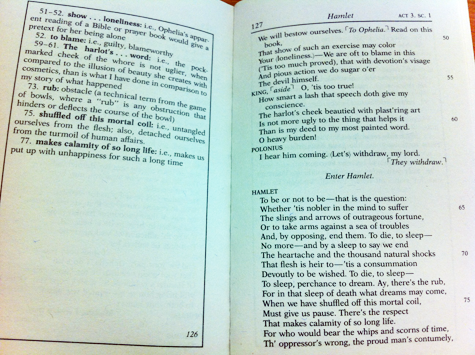
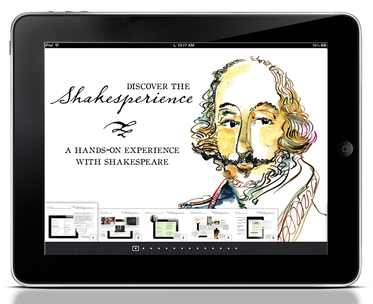
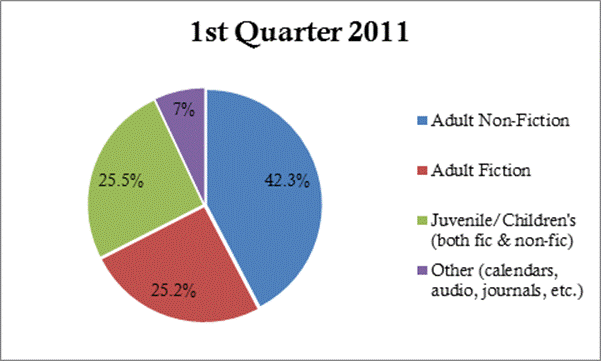
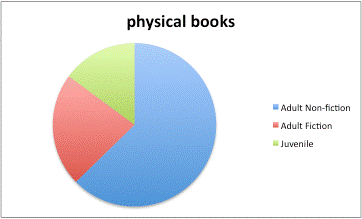
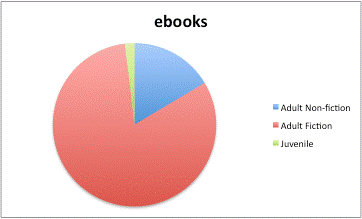

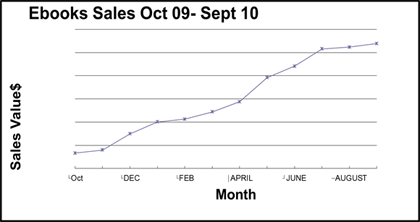
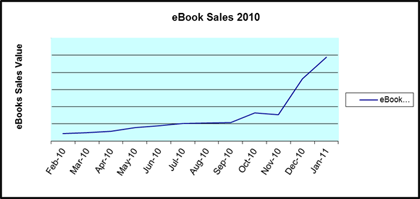
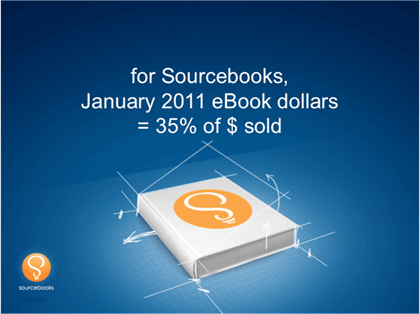
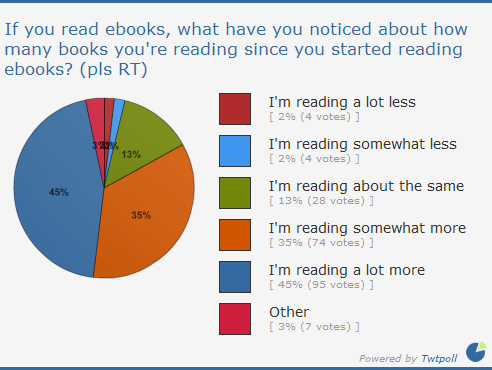
 RSS Feed
RSS Feed
